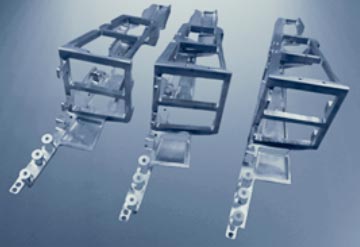Can aluminium be CNC?
Workability:
Aluminum is relatively soft and easy to cut, which makes it ideal for CNC machining. It requires less power and produces less wear on cutting tools compared to harder materials.
Strength-to-Weight Ratio:
Aluminum has a high strength-to-weight ratio, making it suitable for applications where lightweight but strong components are needed, such as in aerospace, automotive, and consumer electronics industries.
Corrosion Resistance:
Aluminum forms a natural oxide layer that protects it from corrosion, making it suitable for applications in various environments.

Surface Finish:
CNC machined aluminum parts can achieve a high-quality surface finish, which is important for both aesthetic and functional purposes.
Availability:
Aluminum is widely available in various grades and forms, such as sheets, bars, and billets, making it accessible for CNC machining.
The most common grades of aluminum used in CNC machining include 6061, 7075, and 2024, each offering different balances of strength, machinability, and corrosion resistance.



